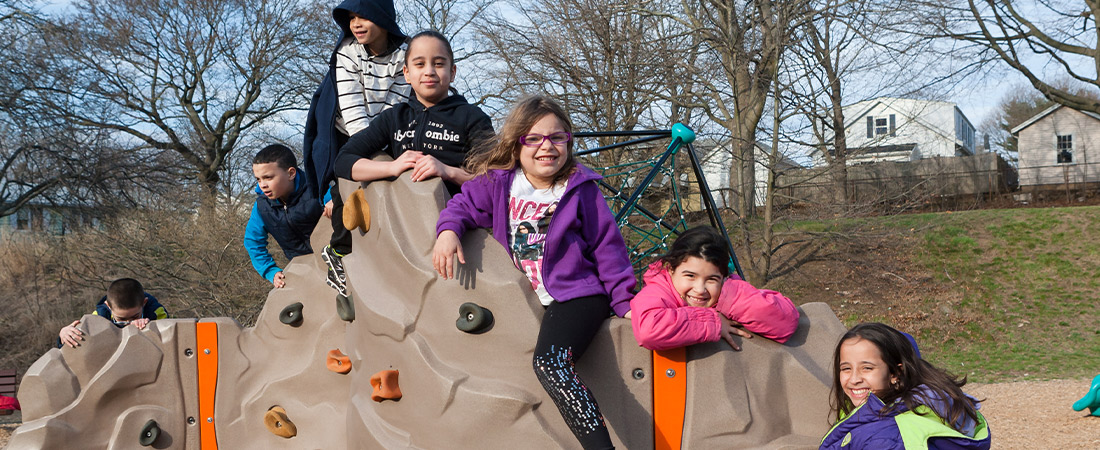
Powerful learning experiences often happen outside of the school day. EDC builds, implements, and evaluates out-of-school and nonformal programs that deliver core civic, educational, and life skills to young people in diverse environments.
In the United States, EDC’s support for out-of-school time (OST) and nonformal learning leverages children’s and youth’s strengths to help them succeed at school, engage in their communities, and lead productive and healthy lives. We design, evaluate, and provide technical assistance on high-quality OST programs that prepare young people for success—whether pursuing social and academic enrichment after school or leaving school and starting a first job.
Internationally, EDC develops and implements programs that support educational and economic opportunities for out-of-school youth. Working within the unique context of each country, we partner with governments, industry, and nongovernmental organizations to provide young people with the skills, knowledge, and opportunities they need to be market-ready and contribute to society.
Related Content
EDC Talks: How Do You Develop High-Quality Out-of-School-Time Programs?
Children can learn a lot from programs that take place outside of school hours.
4 Ways to Strengthen Youth Programs in Conflict and Crisis Areas
Building youth programs in unstable regions can be challenging. Here are four ideas for practitioners.
A Success Story in Senegal
Meet Adama Diedhiou, a participant in EDC’s workforce development program in Senegal.
A Second Chance at School in Mali
In Mali, accelerated education is helping thousands of children get back to school.
3 Ways to Stop the Summer Slide
Want to help kids keep learning this summer? Here are some tips for parents and caregivers.
New Entrepreneurs Launched in Rwanda
EDC’s workforce development efforts in Rwanda are helping young people build the skills for work.
Projects
Resources
Here are a few of our resources on out-of-school learning. To see more, visit our Resources section.
Developed by EDC, this set of eight briefs outlines research related to the challenges and recommendations for K–12 STEM education.
EDC developed the Educator Assessment of Learners’ Soft Skills Ability (EALSA), a formative soft skills assessment, for use with secondary and tertiary students in East and West Africa.
The findings from this research seek to identify opportunities and constraints for employment and self-employment for Liberian youth.
This brief describes how EDC works with multi-sector partners to pioneer new ways to harness the power of digital tools to support families and enhance early teaching, learning, and health promotion.
The Committee on Successful Out-of-School STEM Learning, appointed by the National Research Council’s Board on Education, was charged with identifying effective out-of-school STEM settings and prog
USAID Huguka Dukore Akazi Kanoze is helping to address youth unemployment by improving youth workforce readiness and employment opportunities for thousands of youth across Rwanda. This annual report presents an overview of the project as well as milestones reached during Year Two of implementation.
This guide provides a conceptual framework, instruments, and tools for designing and implementing youth assessments in developing countries.
EDC’s Proyecto METAS conducted a survey in three at-risk urban communities in Honduras between March and May 2013.
The Learning Generation Report presents an action plan to deliver and finance an expansion of educational opportunity for more than 260 million children and youth who are not in school today.
Written for program directors, program managers, educators, and others responsible for developing and implementing STEM programs in schools and community-based organizations, this guide seeks to re

